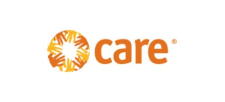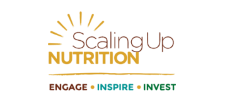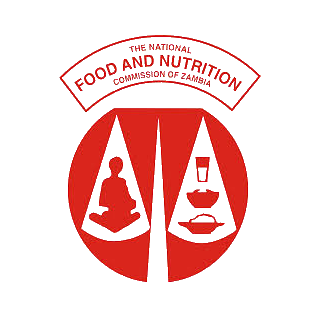- Call us Today : +260 21 122 7803 / +260 21 123 1098
- Email : info@nfnc.org.zm
Frequently Asked Questions
- Home
- Frequently Asked Questions
Diabetes mellitus is a group of metabolic diseases characterised by high blood sugar (glucose) levels. This results from defects in the secretion of the hormone (insulin) that controls the amount of sugar in the blood, or the inability of the body to respond to this hormone. There are two types of diabetes, type 1 which results in an absolute deficiency of insulin secretion and type 2, which is the most common type of diabetes resulting in insulin resistance which typically develops in overweight adults. Other risk factors of diabetes mellitus include physical inactivity, ethnicity or family history.
Every stage in the human lifecycle is critical; a child’s health and growth under 5 is still very important. However, we now talk more of the first 1000 days because this is a critical window of opportunity in which nutrition-specific interventions to improve maternal and child nutrition can lay a foundation to improve children’s prospects for survival, growth, and development. Undernutrition in these early years causes irreversible cognitive impairment, leading to poor school performance and loss of productivity. Unfortunately many Zambian children are suffering from chronic undernutrition, hence the need to advocate for good nutrition, particularly in the first 1000 days of life (period from conception until the child’s second birthday).
Stunting or stunted growth is a reflection of the failure of children (especially in the first 1000 days of life) to receive adequate nutrition over a long period of time and can also be affected by recurrent and chronic illnesses. The height (or length)-for-age index is used to measure stunting and gives an indication of linear growth retardation and cumulative growth deficits in children. Besides the short stature of most stunted children, stunting is also reflected by poor cognitive development of children. When all this is not corrected soon enough, it may become an irreversible damage that will affect the child’s productivity in future as well as the economic growth of the nation at large.
Bottle feeding regardless of what is in the bottle is not a recommended practice because:
- Bottle feeding interferes with suckling if the infant also sucks on the breast causing nipple confusion.
- Formula bottles are difficult to clean thoroughly; this increases the risk of infection like diarrhoea and upper respiratory infection.
The answer is yes, a mother who is HIV positive can breastfeed her baby. In fact she should exclusively breastfeed her baby for the first 6 completed months. Evidence has shown that exclusive breastfeeding reduces child deaths in the first year of life in infants exposed to HIV compared to mixed feeding and other forms of feeding. Thereafter, appropriate soft foods should be introduced while continuing breastfeeding until the child is 12 months old. When a nutritionally adequate and safe diet without breast milk cannot be provided, the mother should continue breastfeeding even after 12 months.
Most toddlers are very picky when it comes to food, others prefer to eat only white foods or bright coloured foods, while others won’t go near meat or make a bad face at the sight of vegetables like okra, lumanda or ifisashi. Although pickiness is normal and tends to lessen with age, you probably still feel you should do something if your child is living on corn flakes and sweets.
Be patient with your child. Allow your child to explore his/her food options by trying something new every day. If your child does not like boiled eggs try scrambled eggs; if your child does not like the appearance and smell of fish try making fish cakes instead. You can also involve them in food preparation to get them excited about the meal you are preparing. Allow them to clean vegetables for you and tell them how vegetables will help them grow like, for example, their favourite cartoon character. When the meal is ready eat together as a family. The child may be encouraged to eat when he/she sees you eating the same food.
Bottle feeding regardless of what is in the bottle is not a recommended practice because:
- Bottle feeding interferes with suckling if the infant also sucks on the breast causing nipple confusion.
- Formula bottles are difficult to clean thoroughly; this increases the risk of infection like diarrhoea and upper respiratory infection.
Many mothers feel pressured to stop exclusive breastfeeding before 6 completed months for various reasons including:
- short maternity leave
- long hours of separation from the child
- fear that there breasts may fall hence affect their appearance.
While you think this will be of benefit to you and the baby, on the contrary the consequences are burdensome. This is because, chances of illnesses and malnutrition increase due to wrong preparation of formula or the baby’s stomach is not ready to tolerate formula and solid foods; this in turn causes
- you to spend less time at work to care for your sick child
- you spend a lot of money buying formula and paying hospital bills
- the child does not grow well
- you don’t get enough sleep
- you to miss out on bonding with your baby
To avoid this, you could express breast milk which you can leave for the carer to give your baby when you are away (read the expressed breast milk brochure to learn how it is done) and breast feed your baby when you get home from work. This will ensure that your baby does not get sick from preventable illnesses and will allow you to bond well with your child. Depending on the conditions at your work place you could also go with the baby to work or ask a relative or child care-taker to bring the baby to work or find a baby day care near your workplace where you can be nearer to your child to ensure continued breastfeeding.
Bottle feeding regardless of what is in the bottle is not a recommended practice because:
- Bottle feeding interferes with suckling if the infant also sucks on the breast causing nipple confusion.
- Formula bottles are difficult to clean thoroughly; this increases the risk of infection like diarrhoea and upper respiratory infection.
The answer is yes, a mother who is HIV positive can breastfeed her baby. In fact she should exclusively breastfeed her baby for the first 6 completed months. Evidence has shown that exclusive breastfeeding reduces child deaths in the first year of life in infants exposed to HIV compared to mixed feeding and other forms of feeding. Thereafter, appropriate soft foods should be introduced while continuing breastfeeding until the child is 12 months old. When a nutritionally adequate and safe diet without breast milk cannot be provided, the mother should continue breastfeeding even after 12 months.
Content Here








Head Office
- National Food and Nutrition Commission Plot# 5112 Lumumba Road, Lusaka, Zambia.
- info@nfnc.org.zm
- +260 21 122 7803 / +260 21 123 1098
- Mon – Fri : 8.00am - 5.00pm
